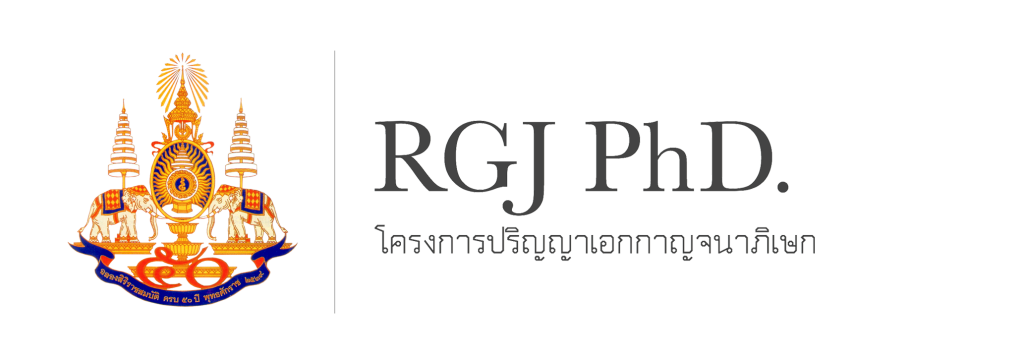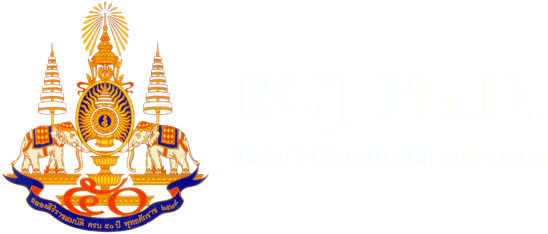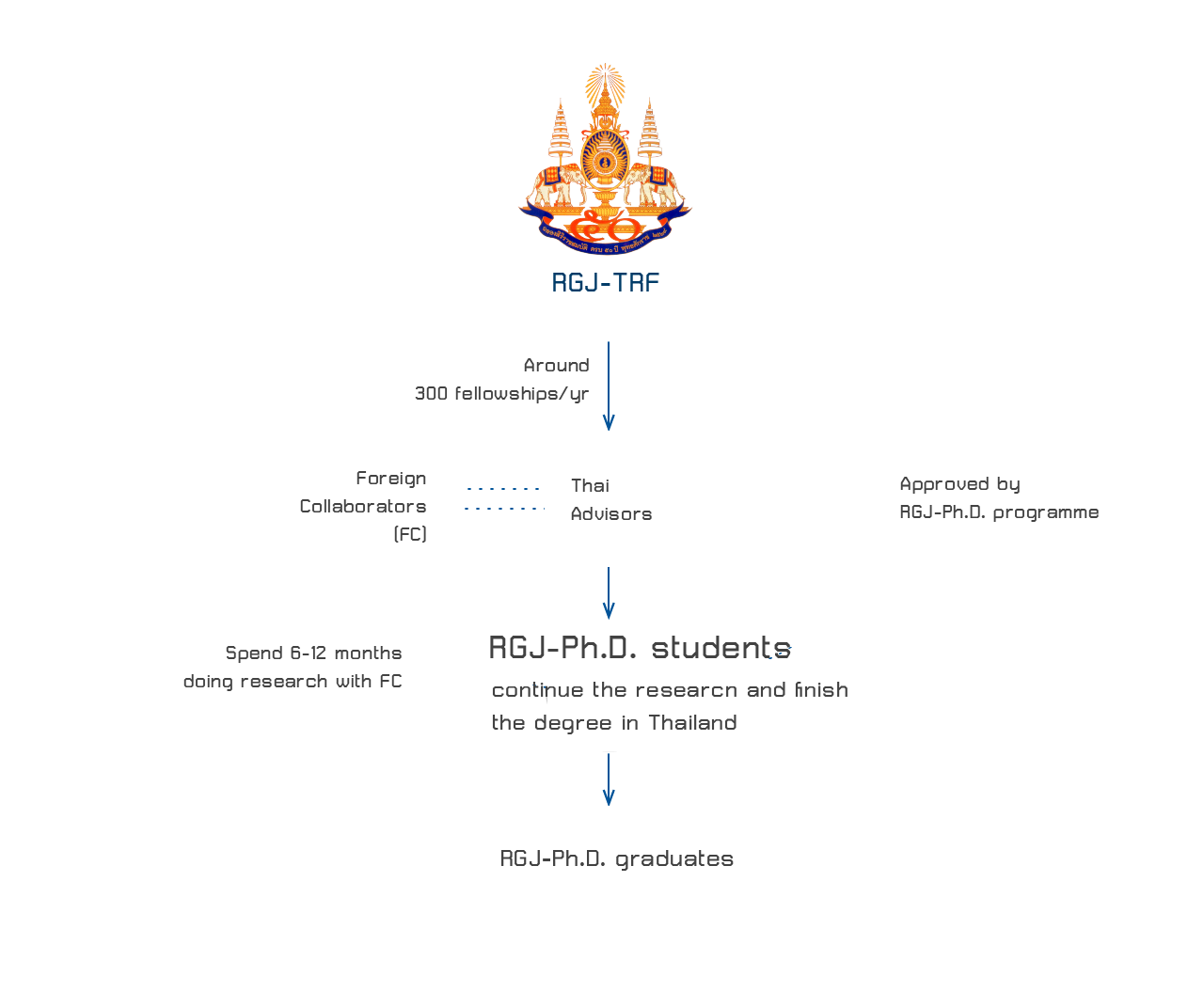
About RGJ
History of the Royal Golden Jubilee (RGJ) Ph.D. Programme
Through the cooperation of four national organizations i.e. the National Research Council of Thailand (NRCT), Health Systems Research Institute (HSRI), National Science and Technology Development Agency (NSTDA), and The Thailand Research Fund (TRF), the RGJ-PhD programme was initiated in 1996 to commemorate the Fiftieth Anniversary of His Majesty the King’s accession to the throne with the mission of producing highly qualified PhD researcher. Since its inception, the programme has awarded approximately 300 PhD’s scholarships each year and it has become the country’s principal and best known researchers’ training scheme.
Objectives
- To produce a large number of research oriented PhD graduates and research outputs with international standards.
- To promote collaborations between Thai and foreign researchers.
- To strengthen graduate education in the Thai university system.
- To save the budget for overseas study of PhD students.
RGJ Aims
Phase I (1998 – 2012): To produce 5,000 Ph.D. researchers and 5,000 publications
Phase II (2008 – 2022): To produce 20,000 Ph.D. researchers and 20,000 publications
RGJ granting scheme
The RGJ-Ph.D. programme supports doctoral students in every discipline to study in Thailand and to carry out research abroad for up to one year during their study. To ensure that the academic outcomes of the Programme attain international standards, only Ph.D. advisors with good research records who have collaborators in recognized universities abroad are awarded the grant. In addition, only bachelor’s or master’s degree graduates with high academic performance and research capabilities are awarded thesis prestigious research scholarship. Every student is also required to publish at least one research paper in an international journal or equivalent before graduation.

